Tesla's Robotaxi Unsurprisingly Delayed, Shares Slumped Over 8%!
Tesla plans to delay Robotaxi's release until October, after shares close down 8.44%, ending the 11-day rally.
According to foreign media reports, Tesla plans to postpone the release of its autonomous robotaxi to October, giving the project team more time to produce additional prototype vehicles.
Insiders reveal that this decision is based on the project's progress. Although not publicly announced, the decision has been internally communicated. This week, the design team was also informed to modify certain elements of the vehicle.
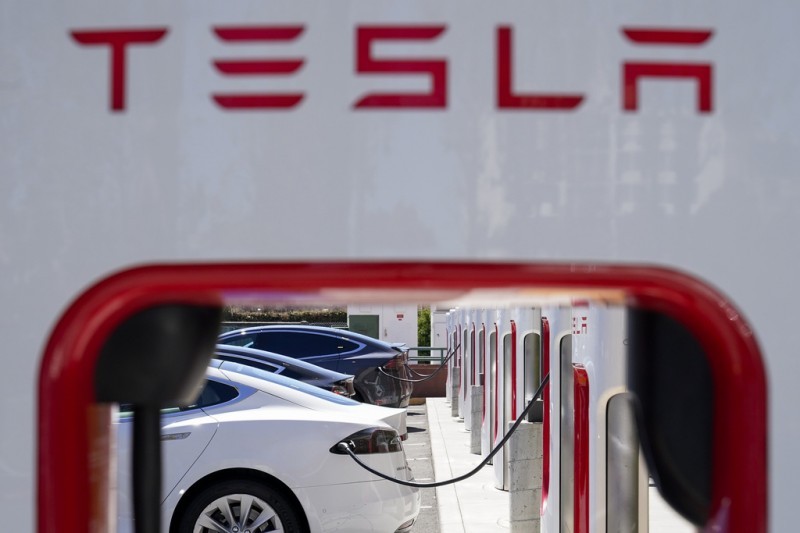
Stock Gains Erased
In recent months, Tesla CEO Elon Musk has been fully invested in the robotaxi project, neglecting the development of an electric car cheaper than the Model 3 (Tesla's lowest-priced model).
Previously, Musk announced that the robotaxi launch event would be held on August 8. Following the announcement, market optimism led to an 11-day consecutive rise in Tesla's stock price, with the market value increasing by over $257 billion.
At the time, Morgan Stanley released a report stating, "The launch of the robotaxi indicates that Tesla's business model is shifting towards hardcore AI and robotics technology. By 2030, Tesla's mobility business revenue could reach $17 billion, directly driving total revenue growth."
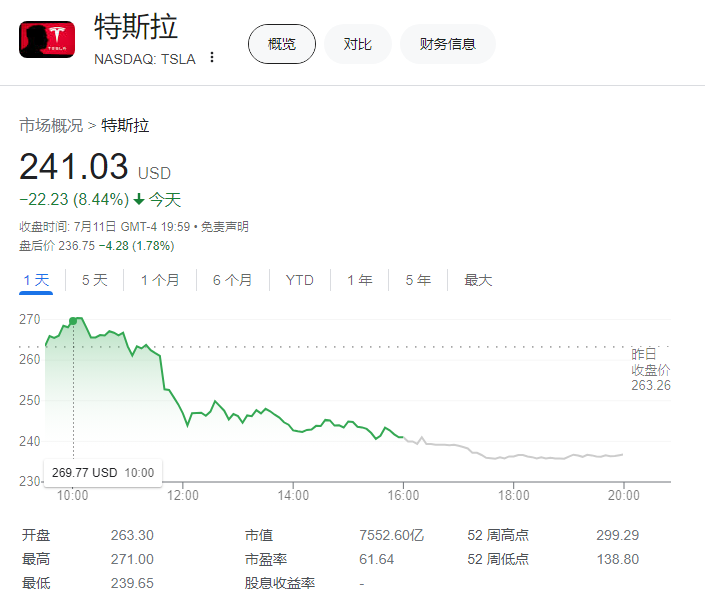
However, after news of the delayed release, Tesla's stock closed at $241.03 per share on July 11, down 8.44%, ending the 11-day rally. The company's total market value currently stands at $768.7 billion, with $70.9 billion evaporating overnight. During this period, Tesla's stock had risen by over 44%.
The Non-Result Preparation
In fact, Musk proposed the robotaxi project in 2015, stating that Tesla would achieve "full self-driving (FSD)" within three years. In 2016, he announced that Tesla would achieve cross-country autonomous driving by the end of the following year. In 2019, Musk told investors that Tesla would have 1 million robotaxis ready for the road by 2020. In 2022, he claimed that robotaxis could be mass-produced by 2024, removing the steering wheel or pedals.
In the first quarter of this year, Tesla management announced that the Tesla robotaxi would be named "Cybercab" and adopt an "unboxed" manufacturing method. Additionally, they introduced the "Autonomous Ride-Hailing Service Plan," a business model similar to ride-hailing and car-sharing, with an average cost per mile below $0.18. Vehicle owners joining the fleet could earn $30,000 annually, which Musk described as a "combination of Airbnb and Uber."
Yet, to this day, Tesla has not delivered a robotaxi, an autonomous vehicle, or any technology that can transform its electric vehicles into Level 3 autonomous driving vehicles. In contrast, Tesla has fallen far behind companies like Baidu's "Apollo Go," Alphabet's Waymo, and General Motors' Cruise.
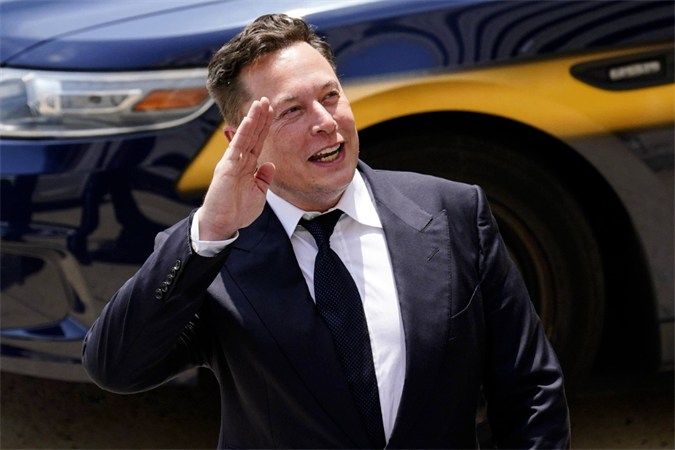
On May 8 of this year, there were reports that Musk made a "lightning" visit to China, intending to launch the robotaxi there.
Subsequently, the China Association of Automobile Manufacturers announced that vehicles from six companies, including Tesla, met four compliance requirements for data security. This implies that restricted areas like government institutions and certain airports will gradually lift restrictions on Tesla vehicles.
There are also reports that Tesla will use advanced assisted driving maps provided by Baidu for the Chinese version of the FSD system, solving Tesla's long-standing map data issue.
Robotaxi Testing Pictures Leaked?
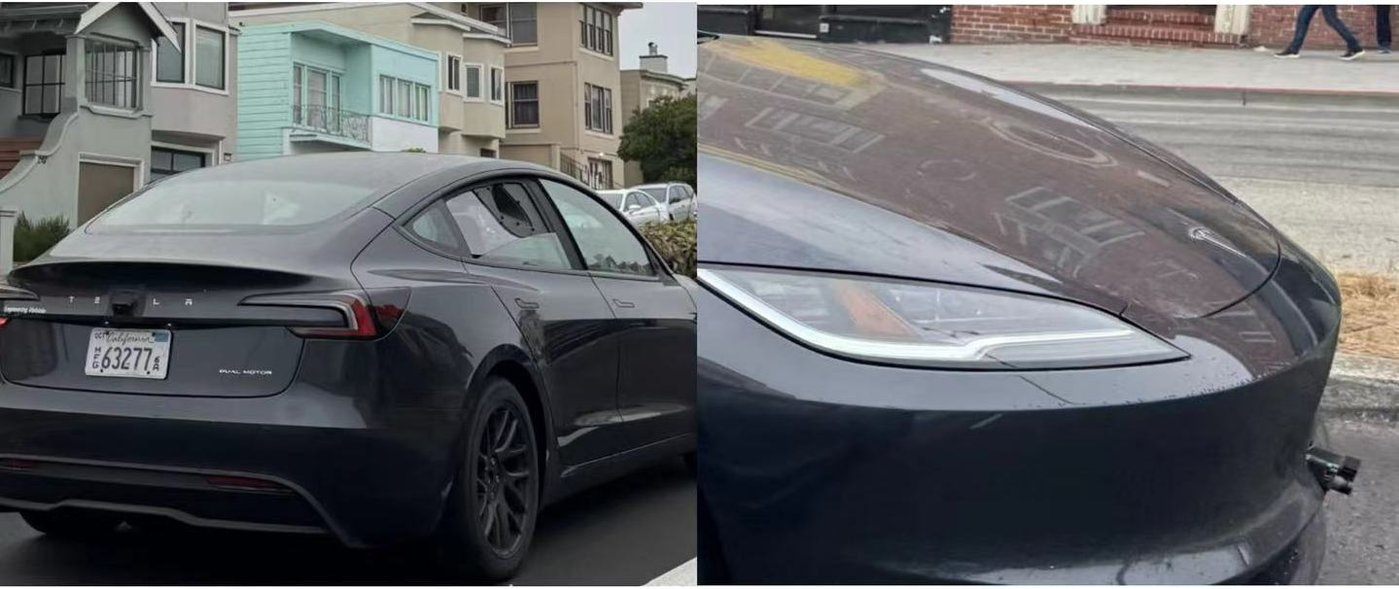
A few days before the robotaxi delay announcement, a user posted online that a Tesla Model 3 test car, equipped with special cameras and internally codenamed "mules," was spotted in Northern California, likely prepared for the robotaxi project.
Images show that the vehicle's cameras had changed positions: the rear bumper camera was raised, the B-pillar camera shifted, and the side cameras were further from the body.
Additionally, the car lacked rearview mirrors but featured a low-mounted front bumper camera, similar to the front camera on the Cybertruck and the upcoming Model Y.
The Popular "Robotaxi" Trademark
According to Tianyancha, the "robotaxi" trademark has been applied for by multiple parties.
Currently, a network technology company in Jiangxi and Baidu's Apollo Intelligent Technology (Beijing) Co., Ltd. have successfully registered trademarks for construction repair and website services, respectively. Other applications have been rejected or declared invalid. Additionally, an individual attempted to register the "Tesla robotaxi" trademark for transportation and storage but was denied.
Notably, Guangdong Xiaopeng Motors Technology Co., Ltd. and Baidu's Apollo Intelligent Technology (Beijing) Co., Ltd. have successfully registered multiple "XPENG ROBOTAXI" and "Apollo Robotaxi" trademarks, including categories such as transportation equipment and scientific instruments. Apollo Intelligent Technology (Beijing) Co., Ltd. is the related technology company for "Apollo Go."
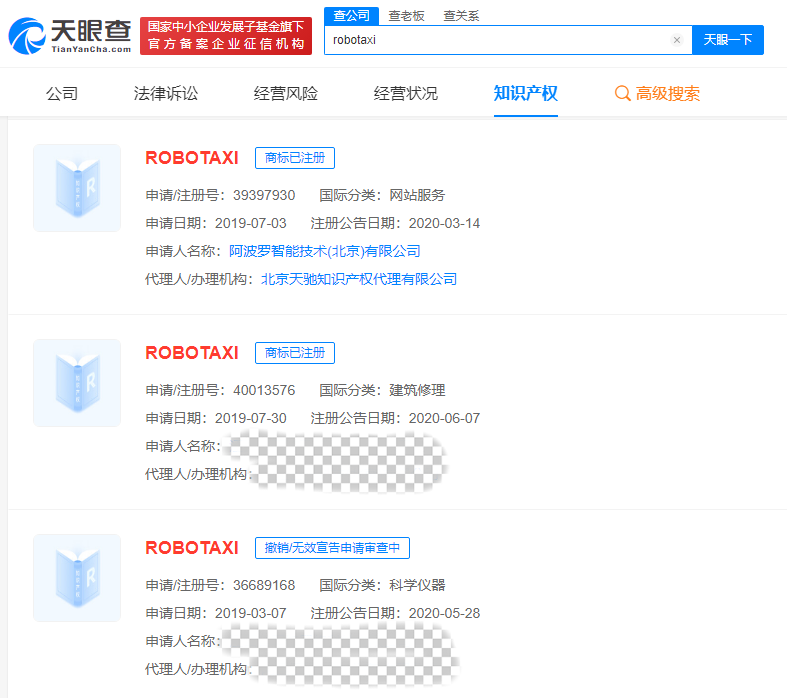
·Original
Disclaimer: The views in this article are from the original Creator and do not represent the views or position of Hawk Insight. The content of the article is for reference, communication and learning only, and does not constitute investment advice. If it involves copyright issues, please contact us for deletion.